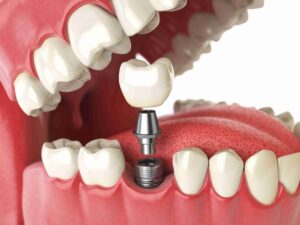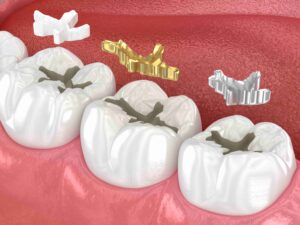Tooth extraction is sometimes necessary when a damaged, decayed, or infected tooth cannot be saved through restorative treatments such as fillings, crowns, or root canal therapy. Broadly, extractions fall into two categories: surgical and non-surgical. Each method has its benefits, limitations, and considerations depending on a patient’s oral condition, overall health, and treatment goals. For patients considering follow-up procedures such as a Dental Implant Liverpool, the type of extraction performed can also impact the healing journey and long-term results.This blog will explore the differences between surgical and non-surgical extractions, highlight the advantages and disadvantages of each, and help patients understand which option may be more suitable.
What is Non-Surgical Extraction?
A non-surgical extraction is the removal of a tooth that is visible above the gum line and can be accessed without surgically cutting into the gum or bone. Dentists typically use forceps and an elevator tool to gently loosen and remove the tooth.This method is often the first choice for teeth that are fully erupted, such as those with advanced decay, fractures, or mobility caused by gum disease. Recovery after this procedure is usually faster and less invasive compared to surgical methods, making it an appealing option for those wanting quicker healing.
What is Surgical Tooth Extraction?
In contrast, a surgical tooth extraction Liverpool involves making an incision in the gum to gain access to a tooth that cannot be easily removed. This is common for impacted wisdom teeth, teeth broken at the gum line, or situations where the roots are curved or embedded in the jawbone.The process may include removing small portions of bone or cutting the tooth into smaller pieces for easier removal. While surgical extraction is slightly more complex, it offers greater precision and ensures difficult cases can be handled effectively.

When is an Extraction Needed?
Tooth removal becomes necessary when it is no longer possible to preserve natural tooth structure. Both surgical and non-surgical extractions may be recommended in situations that include:
- Severe tooth decay beyond restoration.
- Advanced periodontal disease with high tooth mobility.
- Impacted teeth cause pain or infection.
- Preparation for orthodontic treatment to make room for aligning teeth.
- Severe trauma or fracture that cannot be repaired with crowns or fillings.
Comparing Surgical and Non-Surgical Extraction
The table below provides a clear comparison between the two methods, highlighting the key distinctions:
| Factor | Non-Surgical Extraction | Surgical Extraction |
| Procedure complexity | Simple, minimal tools | Involves incisions, may include bone or tooth sectioning |
| Healing time | Faster, usually 1–2 weeks | Longer, typically 2–3 weeks |
| Pain and discomfort | Mild, easier to manage | Slightly more discomfort, managed with pain relief |
| Suitable cases | Fully erupted, mobile teeth | Impacted, broken, or complex root structures |
| Cost factor | More affordable | Higher cost due to complexity and surgical care |
| Preparation for implants | Simpler healing for straightforward implant placement | Better suited for cases needing bone preservation before dental implant placement |
Pros of Non-Surgical Extraction
Choosing non-surgical extraction comes with distinct advantages that appeal to many patients, especially when dealing with teeth that are relatively straightforward to remove.
- Less invasive with minimal trauma to the gums and jawbone.
- Shorter procedure time with quicker healing.
- Lower treatment costs compared to surgical methods.
Cons of Non-Surgical Extraction
While non-surgical extraction is simple and efficient, it does not suit all patients. It comes with certain limitations:
- Not suitable for impacted, broken, or embedded teeth.
- May not fully prevent future complications if roots remain fractured.
- Less control over bone structure preservation, which can influence future dental implant Liverpool treatment planning.
Pros of Surgical Tooth Extraction
A surgical tooth extraction Liverpool is highly effective in cases where complications prevent non-surgical management. Its benefits ensure better long-term oral wellbeing.
- Allows access to complex or impacted teeth.
- Helps protect surrounding teeth from potential overcrowding or infection spread.
- Enables dentists to take a precise approach, reducing risk of incomplete extraction.
Cons of Surgical Tooth Extraction
Despite its many benefits, a surgical procedure is understandably more involved than a standard extraction. Key drawbacks include:
- Longer recovery period with post-operative monitoring.
- Slightly higher risk of swelling, bleeding, or infection.
- Higher treatment expense compared to non-surgical options.
Which Extraction is Better for Dental Implants?
For patients who may progress to a dental implant Liverpool after tooth removal, the type of extraction plays a vital role in the outcome. Non-surgical extractions are typically ideal if the bone remains intact and there is no infection, allowing for easier implant placement after healing.However, surgical extractions may actually provide better control for preserving bone during removal, especially when socket preservation techniques are applied. This careful planning minimises the risk of bone loss and ensures a stable foundation for implants.

Choosing Between Surgical and Non-Surgical
The decision between surgical and non-surgical extraction depends on several factors. Dentists carefully evaluate each case with diagnostic tools such as X-rays or CBCT scans before recommending the most suitable option. Considerations include:
- Severity of tooth damage or decay.
- Position and angle of the tooth.
- Root structure and presence of impaction.
- Long-term treatment goals, including orthodontics or implants.
By tailoring the approach, dentists ensure the best combination of safety, recovery, and future restorative potential.
Key Takeaways
To provide a clearer summary, here are the core differences and considerations between surgical and non-surgical extractions:
- Non-surgical extraction is best suited for straightforward cases with partially or fully erupted teeth.
- Surgical extraction is essential for impacted, fractured, or complex root structures.
- For patients exploring options like dental implant Liverpool, both methods are relevant, though surgical techniques may better preserve bone for implant placement.
Conclusion
Understanding the differences between surgical and non-surgical extraction helps patients prepare for treatment and make informed decisions with their dentist. While non-surgical methods are simple and quick, surgical options provide reliability for more complex cases, ensuring long-term oral health. When planning for tooth replacement with a dental implant in Liverpool, the method chosen for extraction can significantly influence results. At Smilo Dental Implants Liverpool, patients receive professional care tailored to their needs, ensuring both the extraction and subsequent restoration achieve the best possible outcome.